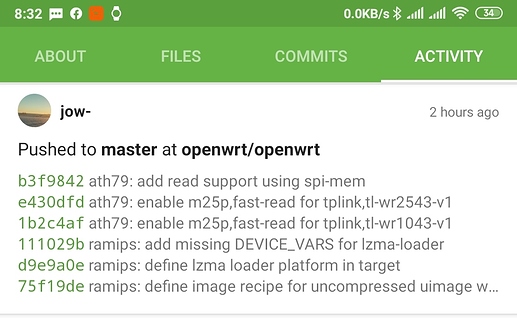There is a ramips lzma loader stuff now:
I tried it with manual inserting:
diff --git a/target/linux/ramips/image/mt7621.mk b/target/linux/ramips/image/mt7621.mk
index 8980ff70d4..4f2966d253 100644
--- a/target/linux/ramips/image/mt7621.mk
+++ b/target/linux/ramips/image/mt7621.mk
@@ -218,7 +218,8 @@ define Device/dlink_dir-860l-b1
$(Device/seama)
BLOCKSIZE := 64k
SEAMA_SIGNATURE := wrgac13_dlink.2013gui_dir860lb
- KERNEL := kernel-bin | append-dtb | relocate-kernel | lzma | uImage lzma
+ LOADER_TYPE := bin
+ KERNEL := kernel-bin | append-dtb | relocate-kernel | lzma | loader-kernel | uImage none
IMAGE_SIZE := 16064k
DEVICE_VENDOR := D-Link
DEVICE_MODEL := DIR-860L
... and with the $(Device/uimage-lzma-loader) recipe (which doesn't contain the relocate-kernel) without luck. 
